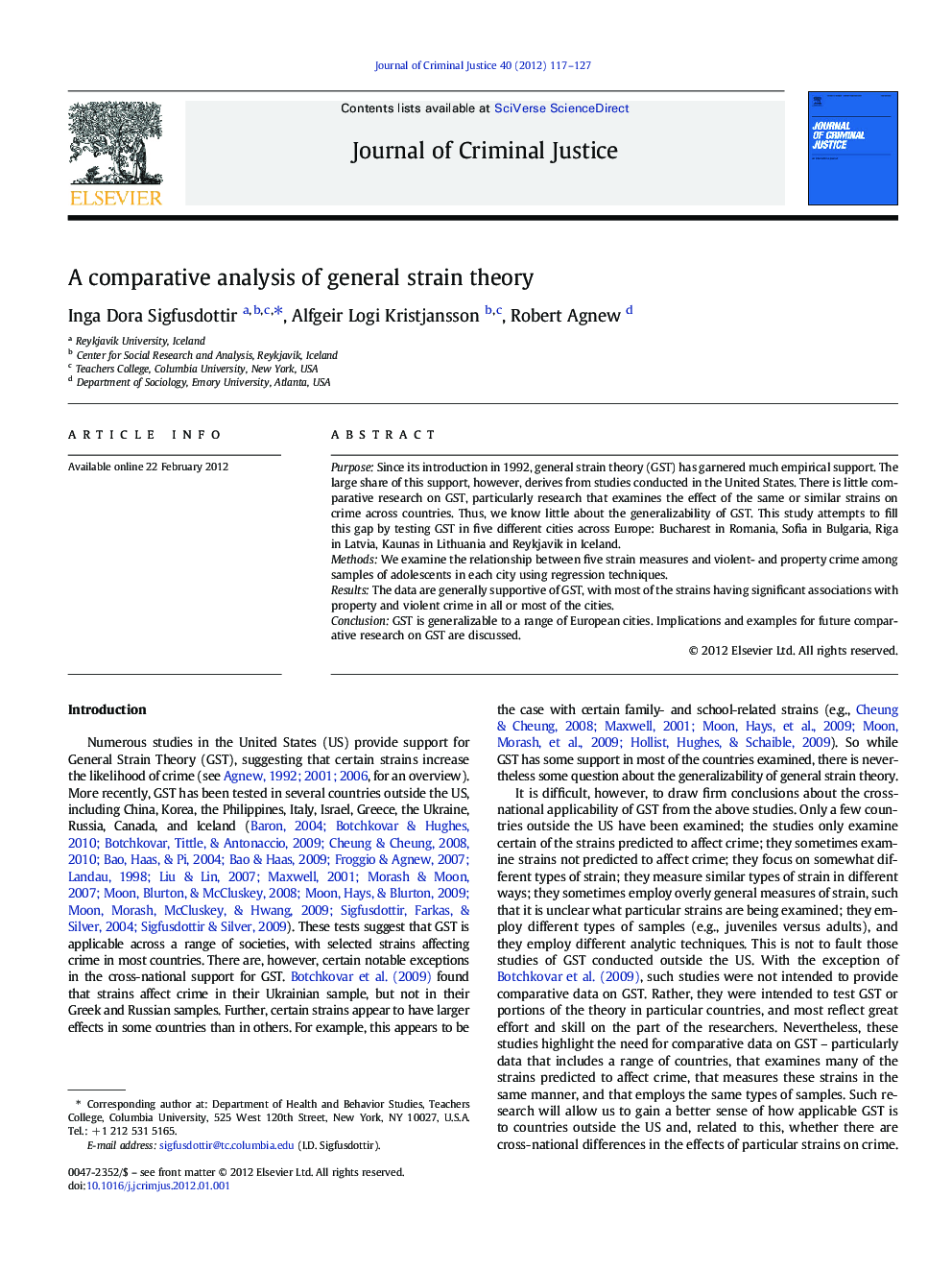| Article ID | Journal | Published Year | Pages | File Type |
|---|---|---|---|---|
| 882836 | Journal of Criminal Justice | 2012 | 11 Pages |
PurposeSince its introduction in 1992, general strain theory (GST) has garnered much empirical support. The large share of this support, however, derives from studies conducted in the United States. There is little comparative research on GST, particularly research that examines the effect of the same or similar strains on crime across countries. Thus, we know little about the generalizability of GST. This study attempts to fill this gap by testing GST in five different cities across Europe: Bucharest in Romania, Sofia in Bulgaria, Riga in Latvia, Kaunas in Lithuania and Reykjavik in Iceland.MethodsWe examine the relationship between five strain measures and violent- and property crime among samples of adolescents in each city using regression techniques.ResultsThe data are generally supportive of GST, with most of the strains having significant associations with property and violent crime in all or most of the cities.ConclusionGST is generalizable to a range of European cities. Implications and examples for future comparative research on GST are discussed.
► This study is the most comprehensive comparative study on general strain theory to date. ► Findings support the generalizability of GST across five European cities. ► Findings apply both to property- and violent crime among youth.
